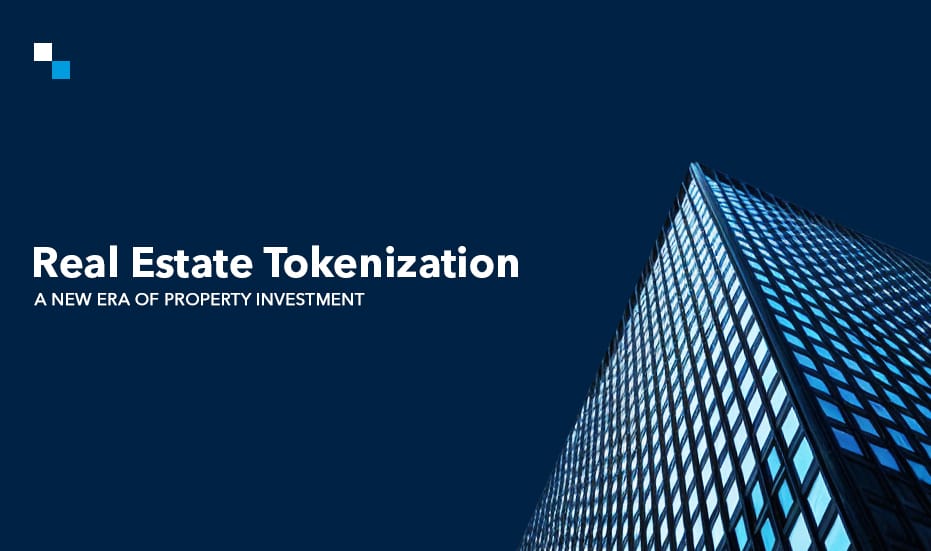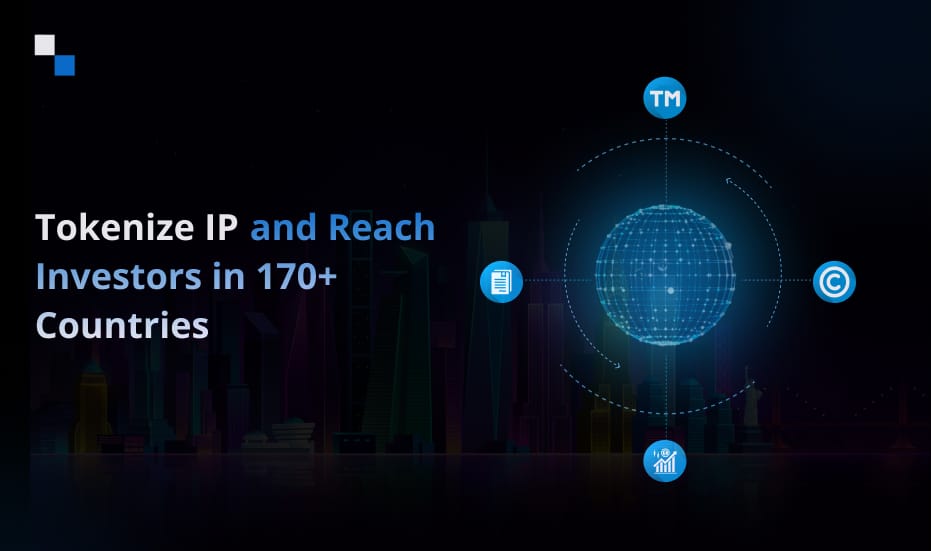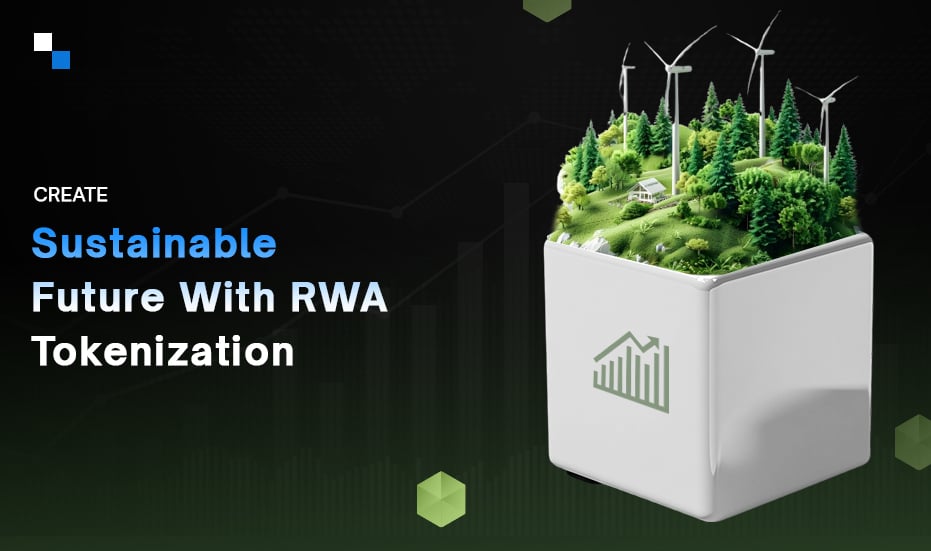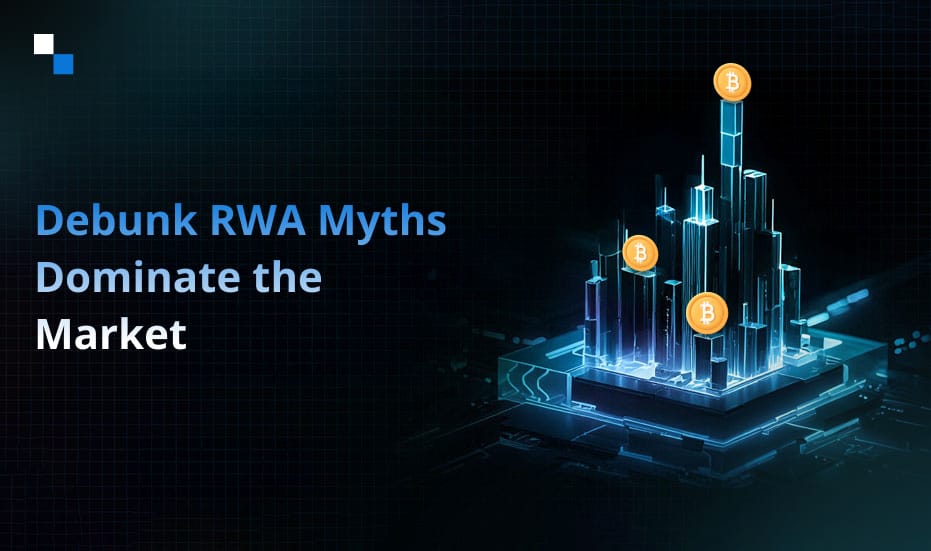
Sui Meme Coins vs. Other Meme Coins: The Trending Faceoff
November 21, 2024
Top 5 Play to Yield Games That Promise High Returns
November 21, 2024In the last few years, real estate tokenization has emerged as one of the most exciting innovations in the property investment space. By using blockchain technology to convert real estate assets into tradeable tokens, tokenization is transforming the way people invest in, buy, and sell property. In 2024, this trend is gaining more traction as technology advances and regulations evolve, making tokenized real estate more accessible to a global audience.
The real estate tokenization market, valued at USD 2.81 billion in 2023, is projected to experience significant growth, reaching an estimated USD 11.80 billion by 2031. This surge, driven by innovative blockchain solutions, translates to a robust compound annual growth rate (CAGR) of 9.91% from 2024 to 2031.
In this detailed blog, we’ll explore real estate tokenization from all angles, covering its significance, how it works, its benefits, and how it’s reshaping the real estate market. Whether you’re an investor, a developer, or an entrepreneur, this guide will help you understand everything you need to know about real estate tokenization and how you can get involved.
What is Real Estate Tokenization?
Real estate tokenization involves converting ownership rights to a property into a digital token on a blockchain. These tokens represent a fractional share of the underlying real estate asset, allowing investors to purchase, sell, or trade pieces of a property without having to buy the entire asset.
Blockchain technology ensures that each transaction is transparent, secure, and immutable, which is a huge advantage over traditional methods of buying or selling property. Tokenization creates liquidity in an asset class that has traditionally been illiquid, enabling fractional ownership and broadening the investor pool beyond just wealthy individuals or institutional players.
Why Real Estate Tokenization Matters?
Real estate has long been considered a stable and profitable asset class, but the traditional process of buying and selling property can be slow, complex, and costly. Tokenization changes that by streamlining the entire process and creating new opportunities for investors and developers alike.
1. Fractional Ownership:
One of the key benefits of real estate tokenization is that it enables fractional ownership. Instead of requiring investors to purchase an entire property, tokenization allows them to buy shares (or tokens) of the property, making it more accessible to people with smaller budgets. This opens up opportunities for retail investors, who were previously excluded from high-value real estate markets.
2. Increased Liquidity:
Real estate is traditionally a highly illiquid asset. Selling a property can take months, and in some markets, it can be much longer. Tokenized properties, on the other hand, can be traded on blockchain platforms almost instantly, making it easier to buy or sell assets quickly. This introduces a new level of flexibility that was never possible before.
3. Transparency and Security:
Blockchain’s immutable ledger ensures that every transaction is transparent and secure. Investors can track the ownership of tokens in real time, reducing the risk of fraud and increasing trust in the system. This transparency also extends to rental income and fees, as blockchain can automate distributions and recordkeeping.
4. Global Accessibility:
Because blockchain operates globally, tokenized real estate allows investors from anywhere in the world to participate in property markets that were previously geographically restricted. This expands the investor pool and allows for more diverse portfolios.
The Growing Role of Tokenization in Real Estate in 2024 and 2025
As we move through 2024 and 2025, real estate tokenization is poised to become a mainstream method for both investing and financing in the real estate market. Several factors contribute to the growth of tokenization:
- Regulatory Progress: Governments and regulatory bodies across the globe are starting to create frameworks that support real estate tokenization. In Europe, for example, the European Union’s Markets in Crypto-Assets (MiCA) regulation is helping to clarify how digital assets like tokens should be treated under the law. This is providing much-needed security for investors and helping to legitimize the industry.
- Institutional Adoption: In the past, tokenized real estate was largely seen as a niche market, but institutional investors are starting to take notice. Major financial institutions, real estate investment trusts (REITs), and developers are beginning to embrace tokenization as a way to unlock liquidity and diversify their portfolios.
- Technological Advancements: Blockchain platforms are improving rapidly, making tokenization more secure and user-friendly. The development of smart contracts and decentralized finance (DeFi) platforms is enabling more seamless and automated transactions in the real estate space.
- Increased Demand for Alternative Investments: As investors seek ways to diversify beyond traditional stocks and bonds, tokenized real estate offers an attractive alternative. By combining the benefits of real estate investment with the flexibility of digital assets, tokenization is gaining traction as an alternative investment vehicle.
The Process of Investing in Tokenized Real Estate
Investing in tokenized real estate is straightforward, but it differs significantly from traditional real estate investing. Here’s an overview of the process:
1. Select a Tokenized Real Estate Platform:
There are several blockchain-based platforms that offer tokenized real estate investments. Some well-known platforms include RealT, Property, SolidBlock, and Tokeny. These platforms list tokenized properties that investors can buy into, and they handle the legal and administrative aspects of the investment.
2. Create a Wallet:
To buy tokens, you’ll need a digital wallet that supports cryptocurrency or blockchain tokens. Most platforms accept Ethereum (ETH) or stablecoins like USDC, but some may offer other payment methods.
3. Browse Available Properties:
Once your wallet is set up, you can browse available properties listed on the platform. Each property listing will include important details, such as the token price, the expected return, and any legal documentation related to ownership and fractionalization.
4. Purchase Tokens:
After selecting a property, you can purchase tokens representing a share of the asset. These tokens are then stored in your digital wallet, and you now have fractional ownership of the property.
5. Earn Rental Income or Capital Gains:
Depending on the nature of the property and the platform, you may earn rental income from your tokens or benefit from capital gains if the property appreciates in value. Tokenized real estate platforms often automate these processes using smart contracts, ensuring that distributions are made promptly.
6. Exit Strategy:
You can sell your tokens on the secondary market or through the platform itself, depending on the rules of the platform. Some platforms allow for peer-to-peer transactions, while others have structured buy-back programs for token holders.
How to Start a Real Estate Tokenization Business?
Starting a real estate tokenization business requires a blend of real estate expertise, technical knowledge, and regulatory compliance. Here’s how you can get started:
1. Understand the Legal Landscape:
Before launching a tokenized real estate platform, it’s crucial to understand the legal regulations governing tokenization in your jurisdiction. Different countries have different rules around securities, real estate transactions, and digital assets. In some cases, real estate tokens may be considered securities, which means you’ll need to comply with financial regulations.
2. Build a Blockchain Platform:
Next, you’ll need to create or partner with a blockchain platform capable of issuing and managing real estate tokens. This involves integrating smart contracts, secure wallets, and transaction mechanisms that are compatible with the regulatory requirements.
3. Partner with Real Estate Developers:
To create a viable real estate tokenization business, you’ll need access to high-quality properties to tokenize. Building partnerships with real estate developers and property owners is essential for getting quality listings for your platform.
4. Launch and Market Your Platform:
Once your platform is set up, focus on marketing and attracting investors. This includes creating educational materials about tokenized real estate, the benefits of fractional ownership, and how the platform works.
Is Tokenization the Future of Real Estate?
Tokenization has the potential to revolutionize the real estate market, as blockchain technology matures, regulatory frameworks evolve, and more investors get involved, it’s clear that tokenization will continue to play a significant role in the future of real estate investment.
With its ability to increase liquidity, reduce barriers to entry, and open up global markets, tokenized real estate offers a compelling vision for the future. In 2024 and 2025, we’re likely to see continued growth in the tokenization space, with more properties, investors, and businesses joining the revolution.

How Much Does Tokenization Cost in Real Estate?
The cost of tokenizing real estate varies depending on several factors, including the complexity of the property, legal fees, platform fees, and the blockchain technology used. Generally, businesses can expect to pay for:
- Legal and Regulatory Compliance: Ensuring compliance with securities laws can be expensive, especially if the property is large or involves multiple jurisdictions.
- Technology Setup: Building or integrating with blockchain platforms can require significant investment.
- Marketing and Administrative Costs: Attracting investors and managing ongoing operations also incur costs.
However, these expenses can be offset by the efficiencies and liquidity gains tokenization offers.
Conclusion
Real estate tokenization is rapidly gaining traction in 2024 and will continue to do so in 2025, and it’s clear that this technology has the potential to reshape the property investment landscape. Whether you’re looking to invest in tokenized properties or start a tokenization business, understanding the process, costs, and opportunities will help you navigate this exciting new space. Get in touch with Antier to venture into real estate tokenization space!
FAQs
1. How Does Tokenization Impact Traditional Real Estate Investment?
Tokenization can complement traditional real estate investment by providing increased liquidity, accessibility, and transparency. It can also attract a wider range of investors, including retail investors.
2. What are the Environmental Benefits of Real Estate Tokenization?
By reducing paperwork and physical transactions, real estate tokenization can contribute to environmental sustainability. It can also facilitate more efficient property management and reduce the carbon footprint of real estate operations.
3. What are the Potential Tax Implications of Real Estate Tokenization?
The tax implications of real estate tokenization can vary depending on jurisdiction and specific circumstances. It’s crucial to consult with tax professionals to understand the tax consequences of buying, selling, and holding tokenized real estate
4. What is the Role of Decentralized Finance (DeFi) in Real Estate Tokenization?
DeFi protocols can enable decentralized lending and borrowing platforms for real estate investments. This can provide alternative financing options for real estate projects and investors.




